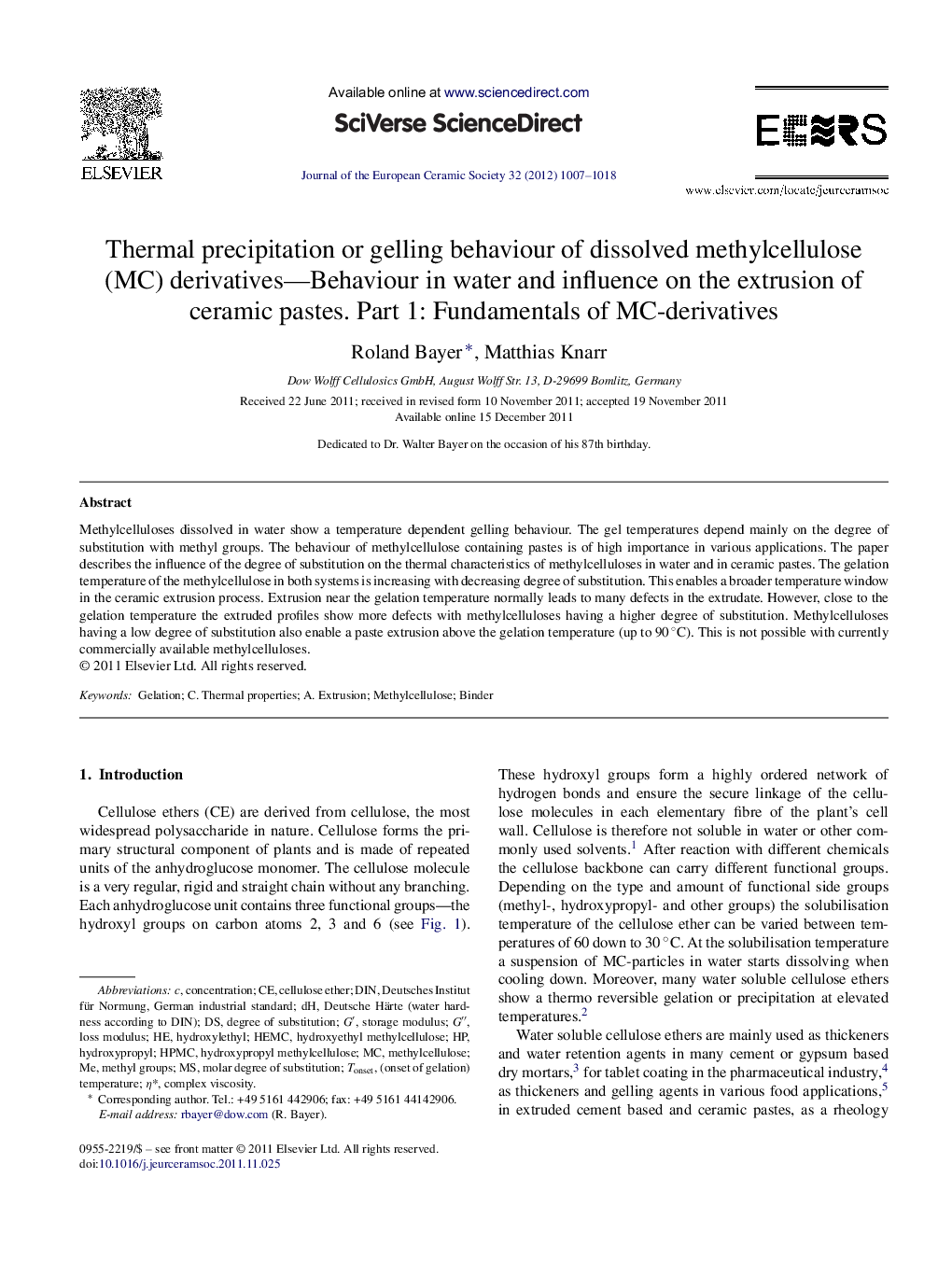| Article ID | Journal | Published Year | Pages | File Type |
|---|---|---|---|---|
| 1474051 | Journal of the European Ceramic Society | 2012 | 12 Pages |
Methylcelluloses dissolved in water show a temperature dependent gelling behaviour. The gel temperatures depend mainly on the degree of substitution with methyl groups. The behaviour of methylcellulose containing pastes is of high importance in various applications. The paper describes the influence of the degree of substitution on the thermal characteristics of methylcelluloses in water and in ceramic pastes. The gelation temperature of the methylcellulose in both systems is increasing with decreasing degree of substitution. This enables a broader temperature window in the ceramic extrusion process. Extrusion near the gelation temperature normally leads to many defects in the extrudate. However, close to the gelation temperature the extruded profiles show more defects with methylcelluloses having a higher degree of substitution. Methylcelluloses having a low degree of substitution also enable a paste extrusion above the gelation temperature (up to 90 °C). This is not possible with currently commercially available methylcelluloses.
